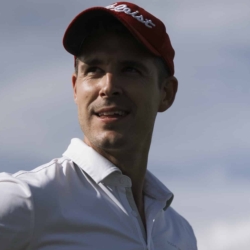12 June 2025
In our latest ‘Meet the Team’ blog, we spoke to James Lewin, Corporate Finance Manager at Translink Corporate Finance UK.
James shares insights into his career, what a typical day looks like in his role, how he spends time outside the office, and his advice for aspiring corporate finance trainees.
Can you describe your role and the key responsibilities that come with it?
I joined Translink in January 2025 as a Corporate Finance Manager in the Leicester office, having previously spent four years working in corporate finance focussing on lower mid-market transactions across both sell-side and buy-side deals.
My role at Translink focuses on sell-side transactions and covers all aspects of the process. This includes pitching, indicative valuations, drafting and reviewing seller packs, market research and buyer contact, due diligence preparation and support, financial modelling, and SPA reviews.
As a team, we work closely on all projects, and each of us brings a different perspective. This collaborative approach forms the basis for providing the best possible advice to clients. It helps us add value and exceed expectations. Client care is at the heart of my role.
What does a typical working day look like for you?
Every day is different, but I usually start by reviewing emails and updating my to-do list to prioritise where my attention is needed most.
We have a strong pipeline of projects at various stages, so each day is about keeping things moving.
I spend most of my time creating financial models, such as discounted cash flows, valuation assessments, and performance review. I also set up data rooms and review client documents to support transactions entering diligence.
What’s the one must-do activity that you do every day?
Like most people, time is precious during the week. Between commuting, work, and life admin, it’s easy to forget to decompress.
I try to set aside 30 minutes a day to do something away from screens and noise. That could be tinkering with my motorcycles, painting, going for a walk, or just enjoying some quiet time.
What are some of the most challenging aspects of your job, and how do you overcome them?
Managing client expectations is often one of the biggest challenges. While we always aim for the best possible outcome, we also need to be clear about what’s realistically achievable.
The key is to have a clear plan from the beginning and to communicate in a thoughtful and timely way throughout. Deal fatigue is real. When a process takes longer than expected, tensions can rise. Maintaining a positive relationship and setting realistic expectations is essential. Never overpromise and underdeliver.
Can you share an example of a successful project or deal that you’ve worked on?
I was particularly proud to support the sale of a leading UK HVAC installer. I led negotiations around Net Working Capital and Free Cash, achieving a significant uplift in the day one consideration.
Are you seeing any trends emerging within the corporate finance landscape?
The corporate finance landscape is constantly evolving, with change being driven by technology and a growing focus on ESG.
ESG remains a major focus, as governments push towards Net Zero and introduce stricter reporting requirements. While SMEs in the UK face less intense regulations compared to larger businesses, ESG is still a key consideration in lower mid-market deals.
Feedback from both trade and private equity buyers is clear. ESG is now a crucial factor when assessing opportunities. Buyers are investing significant time and resource into ensuring targets are sustainable and will not negatively affect public perception after the transaction. Corporate finance is no longer just about the numbers.
What motivates you most in your work, and how do you ensure you continue to deliver value to your clients?
I like to stay busy, set goals, and keep learning. Even something as small as discovering a new Excel formula that improves a databook gives me a sense of achievement.
More complex tasks, such as building detailed models or negotiating commercial terms, help me stay focussed on the end result.
I believe that continuing to build both my technical expertise and interpersonal skills allows me to offer well-rounded, valuable advice to clients. That, in turn, helps them achieve their goals and creates real value.
What skills or qualities do you think are essential for someone to excel in corporate finance advisory?
Corporate finance isn’t just about numbers. It’s a people-focussed career. Technical skills are important, but they’re not the only measure of a strong adviser.
In my view, a good adviser can communicate clearly and adapt their style to suit different people and situations. Building genuine relationships is vital.
A sale process is complex and often lengthy. Advisers need to explain those complexities in a way that works for a wide range of stakeholders, some of whom may not be familiar with the process at all. Clients need to trust their adviser.
You can have all the technical knowledge in the world, but if you can’t communicate effectively and build trust, you’ll struggle to gain traction.
What advice would you give to trainees starting out?
Technical knowledge is essential, so give your exams the attention they deserve. But practical experience is just as important.
If your firm offers secondments to other teams, make the most of them. Get involved in preparing accounts, learn about business tax, and understand what auditors look for. This helps build critical thinking skills and gives you a clearer picture of the financial information clients provide during a transaction.
Not all clients have perfect financials, so the ability to assess data critically is crucial to avoid problems later on.
On top of that, don’t be afraid to network. Relationships become increasingly important as your career progresses. Having a trusted network is invaluable when business development becomes part of your role.
Explore local young professional groups or ask senior colleagues if you can join them at industry events. Put yourself out there.
What’s one thing you learned in school that has stuck with you?
School taught me many things, but one that stands out is the value of different perspectives. I went to an international school with students from a wide range of ethnic, religious, cultural, and socio-economic backgrounds.
I made great friends and saw first-hand how life experience shapes how we approach problems and challenges.
The same is true in the workplace. Teams are diverse, and different viewpoints are essential. The best solutions often come from listening to and evaluating all contributions.
Outside of work, how do you like to spend your time? Do you have any hobbies or interests?
I’m interested in almost anything with an engine. I have two motorcycles and ride or work on them whenever I can. When I’m not on the bikes, I’m usually trying out new recipes in the kitchen at the weekend.
What’s the biggest thing on your bucket list?
I’ve been fortunate to do a lot already. Last year, I rode my motorcycle around the Isle of Man TT course, albeit slowly, which was a big one for me. But one thing still on the list is scuba diving the Great Barrier Reef.


